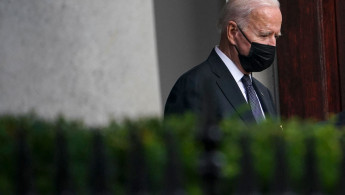White House warns of 'economic catastrophe' without debt deal
President Joe Biden's administration is warning of a "economic catastrophe" if the US Congress fails to increase the nation's borrowing limit.
But Republicans have vowed to withhold support for raising the debt ceiling - forcing Democrats in the majority to bear the political costs alone.
US Treasury Secretary Janet Yellen has warned that without an increase the government will run out of cash to fund operations and pay its debts sometime in October.
"The US has never defaulted. Not once. Doing so would likely precipitate a historic financial crisis that would compound the damage of the continuing public health emergency," she said in a column Monday in The Wall Street Journal.
The issue has frequently been a political football in politically-polarized Washington, with Republicans engaging in brinksmanship multiple times during the administration of Democrat Barack Obama.
But under Biden's predecessor Donald Trump, Democrats supported Republican efforts to suspend the debt limit for two years.
The ceiling was reinstated on August 1 with debt at $28.4 trillion, and Treasury already is shuffling government funds around to continuing paying the bills.
Republicans use the issue as a way to hammer the ruling party on its spending, and the Obama-era impasse saw the country come the closest it had ever been to defaulting.
In the aftermath of that conflict in 2011, the United States lost its coveted "AAA" debt rating from Standard and Poor's which sent shockwaves through the markets.
Republican Senate leader Mitch McConnell has said his party is "united in opposition to raising the debt ceiling" but in 2019, he argued that failing to do so "would be a disaster."
Extraordinary measures
Yellen, who had a phone call with McConnell last week, said even waiting until the last minute could cause a cascade of financial disasters including rising borrowing rates and 50 million seniors missing their government payments.
"There is no valid reason to invite such an outcome, certainly not fiscal responsibility, the most commonly stated reason," she said.
The "overwhelming consensus among economists and Treasury officials of both parties is that failing to raise the debt limit would produce widespread economic catastrophe."
The showdown comes as Democrats are working to pas two massive spending bills -- the eight-year, $1.2 trillion infrastructure package and a 10-year, $3.5 trillion package with a host of social programs, largely paid for by rolling back tax cuts.
And with the end of the fiscal year fast approaching, lawmakers likely will need to approve a temporary funding bill by September 31, known as a continuing resolution, to avoid a government shutdown.
Treasury already has begun taking what it calls extraordinary measures to keep from breaching the cap on borrowing, but the steps will become increasingly stringent as the drop dead date approaches.
These including not investing in the savings plans and retirement funds for government employees, which the Bipartisan Policy Center, a Washington think-tank, said can stretch for three to six months.
Once exhausted, the government will not be able to pay salaries for troops, employees and retirees, and worse could default on debt payments.
The White House argues that the debt limit should not be a partisan issued, and business groups, economists and former Treasury secretaries of both parties have now, as in past instances, urged a rapid resolution.
In a letter to colleagues on Sunday, House Speaker Nancy Pelosi, noted that the issue has always had bipartisan support, including three times in the Trump administration.
"Congress, as always, is ironclad in its commitment to never letting the full faith and credit of the United States come under threat," she said. "When we take up the debt limit this month, we expect it to be bipartisan once more."
The debt ceiling has been raised about 80 times since the 1960s.







